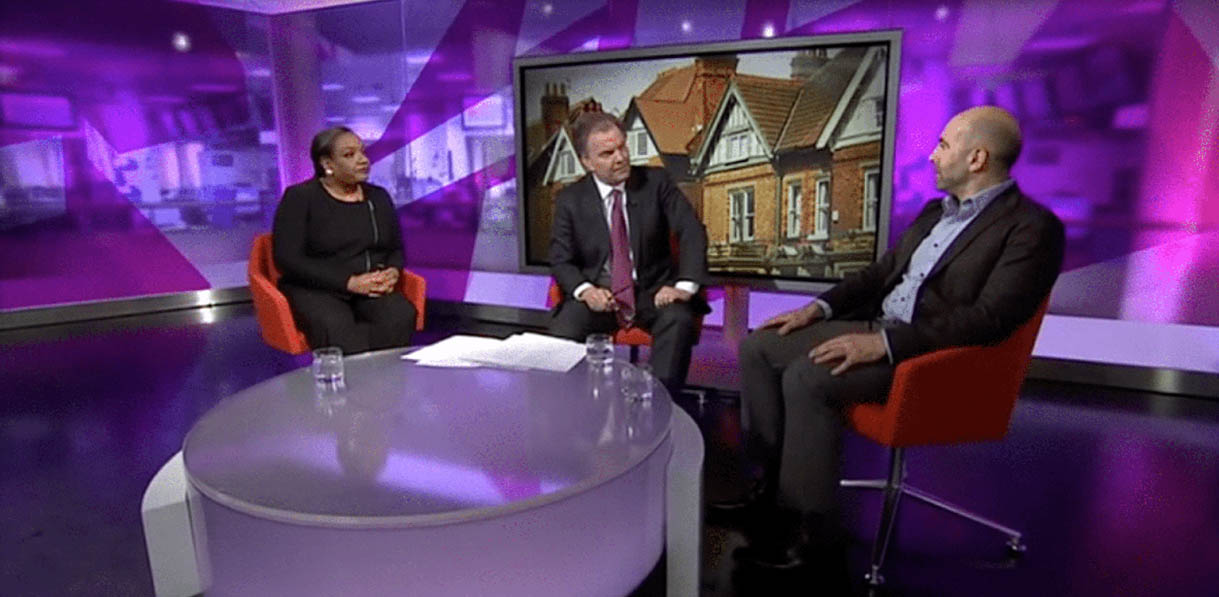 No London borough is complete without its landlord licensing scheme, it would seem. Politicians, keen to look like they’re sorting out landlords, are following a fashion. Get your staff to look at the feasibility of licensing. Even though the fees can only be used to fund the scheme, the extra millions maintain departments in a time of extensive cuts.
No London borough is complete without its landlord licensing scheme, it would seem. Politicians, keen to look like they’re sorting out landlords, are following a fashion. Get your staff to look at the feasibility of licensing. Even though the fees can only be used to fund the scheme, the extra millions maintain departments in a time of extensive cuts.
Is selective licensing the best way to improve standards in the PRS? We have no idea because none of the boroughs have been patient enough to carry out a proper evaluation of Newham’s first borough wide scheme. Let’s not forget that the 2004 Housing Act intended that selective licensing deal with anti social behaviour as a last resort, so these broader uses of the law to generally improve conditions in the sector stretch the legislation way beyond its intended use. Even worse, local authorities are dreaming up wish lists of licensing conditions that go beyond the legal requirements for landlords in non licensed areas and as such could leave the local authority open to legal challenge.
I spent Tuesday this week at two licensing meetings starting in Southwark, a local authority that prides itself on having produced a scheme that is more targeted than the borough-wide copycat schemes of East London. Southwark is consulting on selective and additional licensing until 19 December 2014. Unlike Newham, this is a borough with pockets of anti social behaviour and sharp contrasts in wealth. The scheme proposes selective licensing along arterial routes likes Camberwell, Old Kent & Walworth roads and in its consultation seeks views on proposed red areas and slightly largely pink areas. Additional licensing is planned for the whole borough, sweeping up all accommodation with three or more sharers in two or more households. So that is a two bed rented property with a couple and a lodger – or larger. The borough is concerned that too many of these HMOs are poorly converted and poorly managed. I pointed out that staff are conflating room let properties with houses let to students or groups of professional on one contract. They are a very different management proposition and licensing conditions risk turning three bed houses into institutionalised rentals with gruesome fire doors and licenses and gas safety certificates on communal noticeboards. How many tenants want their home to be stigmatised in this way?
We have seen a number of onerous conditions put forward by council officials across the capital. Barking & Dagenham have introduced compulsory PAT testing and every licensed property must have an inspection. They should have learned from Newham’s approach which was light touch with good landlords and targeted resources at the non compliant ones. Waltham Forest had planned to force landlords to produce electrical certificates for all properties, again not otherwise a legal requirement. This license condition could see 30,000 properties in the borough suddenly requiring a suitably qualified electrician, absurdly onerous and impractical. In Southwark you will have to upload your gas safety certificate annually, a condition we pleaded with Waltham Forest to remove. As a senior environmental health officer at Islington said, “what is the point in collecting all this data on good landlords we don’t need to know anything about.” All decent landlords know they need a gas safety certificate for themselves and their tenant, why on earth should they have to show it to a local authority? This double compliance bureaucracy shows the scheme’s creators in a very poor and patronising light. I think most tax payers would prefer that their local authority didn’t waste resources managing 30,000 scans of gas safety certificates every year.
However well intentioned it’s scheme, I’m afraid Southwark landlords are likely to be up in arms. Expect articulate and forceful opposition from the well heeled agents and property owners of Borough, East Dulwich and environs. Interestingly the scheme has been priced at £60. Sounds cheap but then you realise this is per room per year. My 3 bed house in Newham cost me £150 to license for 5 years. In Southwark this would cost me £900 – six times as much!
Back on another Boris bike, I head to Moorgate to catch the train to a landlord meeting in Palmers Green where the Enfield borough-wide additional and selective licensing scheme is due to commence in April 2015. There is much excitement about a judicial review application spearheaded by local landlord, Constantinos Regas. He has been given permission by a high court judge to seek a judicial review of additional licensing proposals which the judge considered to be arguably unlawful. Enfield estimates that 40% of around 27,500 privately rented properties in the borough would be liable for additional licensing. Ultimately there is nothing to stop the borough from selectively licensing this 40%, but it would probably have to re-run its consultation exercise. (Constantinos tells me the law doesn’t allow selective licensing of HMOs)
Constantinos is tenacious and passionate and it’s very interesting hearing him speak. He characterises selective licensing as forcing landlords to become responsible for tenants’ anti social behaviour, which ultimately could result in landlords being criminalised through no fault of their own. He says that if a landlord fails the ‘fit and proper’ test required by licensing schemes he or she could face losing their right to manage all of their properties in Enfield and other boroughs with licensing schemes. He argues that one infringement could result in a fine of up to £20,000 and gives as an example failure to place the license on a communal noticeboard in the property.
Constantinos needs to raise funds for his campaign and stirring passions is part of his strategy. The campaign has raised considerable funds, but one agent pointed out that an appeal to all of its clients to contribute £50 resulted in just one commitment. Constantinos advises that if he wins the case and Enfield has to pay his costs he will refund contributions. Sat next to me was veteran landlord Peter Littlewood from the Southern Landlords Association (SLA), who ran two judicial review campaigns in Thanet and Southampton. Both failed in the courts but did result in some behind the scenes renegotiation with the local authorities. Peter struck several notes of caution: winning is difficult, getting costs very optimistic. One of the reasons why the National Landlords Association hasn’t funded a case is because even if it won, the local authority would probably just re-run the consultation and address the judges concerns accordingly. The SLA spent £100,000 on legal fees for the Thanet case, provided by a wealthy benefactor. I think Constaninos is looking for half of this, but would you donate that sort of figure knowing the odds?
There was something very heartening about the meeting, with many good committed landlords in the room, providing quality homes for local residents. One Labour and one Conservative councillor were also present proving there is some compassion and common sense amongst local politicians.
The key flaw in licensing is that it is poorly targeted – reaching good not bad landlords – and that it is sanction based. So it alienates the very landlords local authorities need to work with. I wish Constantinos the best of luck and will follow the case with interest, but like many I think it is unlikely that it will achieve a better outcome for Enfield landlords. I’d like to think it would encourage other local authorities to think long and hard before introducing their schemes, but fear it will make them even more savvy at how to avoid judicial review. This is a fashion and we will just have to wait until it becomes unfashionable.
If you are reading this and thinking something must be done about bad landlords, I completely agree. What we need are reward based schemes like tax incentives to improve standards and encourage accreditation. We should also allow local authorities to keep fines from enforcement action, to encourage them to use their panoply of existing powers. To stop landlords who are not fit and proper, we need a light touch centrally administered registration scheme. If you are a criminal operator you would lose your registration and right to let property. Let’s hope that the latter will one day result in the abolition of licensing.








